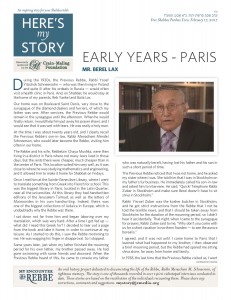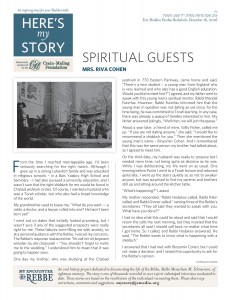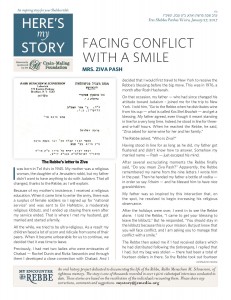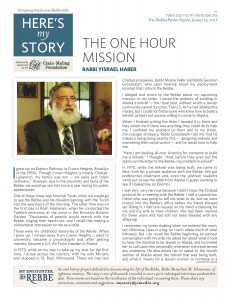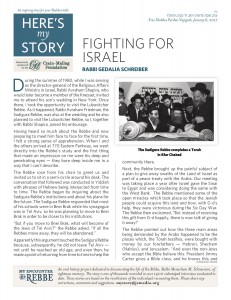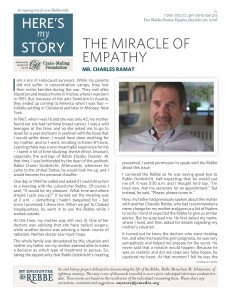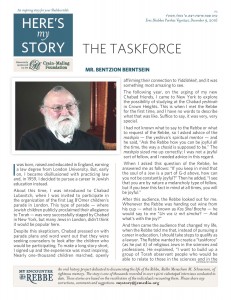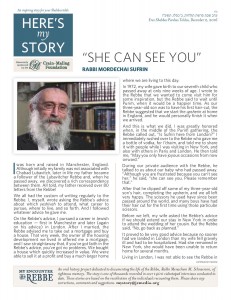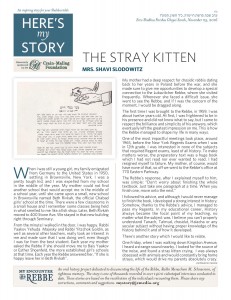The Early Years – Paris
During the 1930s, the Previous Rebbe, Rabbi Yosef Yitzchok Schneersohn – who was then living in Poland and quite ill after his ordeals in Russia – would often visit a health clinic in Paris. And, on Shabbos, he would stay at the home of my parents, Reb Yankel and Baila Lax.
Our home was on Boulevard Saint Denis, very close to the synagogue of the diamond dealers and furriers, of which my father was one. After services, the Previous Rebbe would remain in the synagogue until the afternoon. When he would finally return, I would help him put away his prayer shawl, and I would see that it was wet with tears. He was really a holy man.
At the time I was about twenty years old, and I clearly recall the Previous Rebbe’s son-in-law, Rabbi Menachem Mendel Schneerson, who would later become the Rebbe, visiting him often in our home.
The Rebbe and his wife, Rebbetzin Chaya Mushka, were then living in a district in Paris where no Jews lived in those days. But the rents there were cheaper, much cheaper than in the center of Paris. This location suited him very well, as it was close to where he was studying mathematics and engineering, and it allowed him to make it home for Shabbat on Fridays.
Once I met him at the Sainte-Geneviève Library, where I went to translate something from Greek into French for school. This was the biggest library in Paris, located in the Latin Quarter, near all the universities. At this library they had handwritten editions of the Jerusalem Talmud, as well as the letters of Maimonides in his own handwriting. Indeed, theirs was one of the biggest collections of Judaica in Europe, which is undoubtedly why the Rebbe was there.
I sat down not far from him and began laboring over my translation, which was very hard. After a time I got fed up – what did I need this Greek for? I decided to tear out a page from the book and take it home, in order to continue at my leisure. As I started to do this, I saw the Rebbe motioning to me. He was wagging his finger in disapproval. So I stopped.
Some years later, just when my father finished the mourning period for his own father, my brother passed away. He had gone swimming with some friends and drowned. When the Previous Rebbe heard of this, he came to console my father who was naturally bereft, having lost his father and his son in such a short period of time. (more…)


